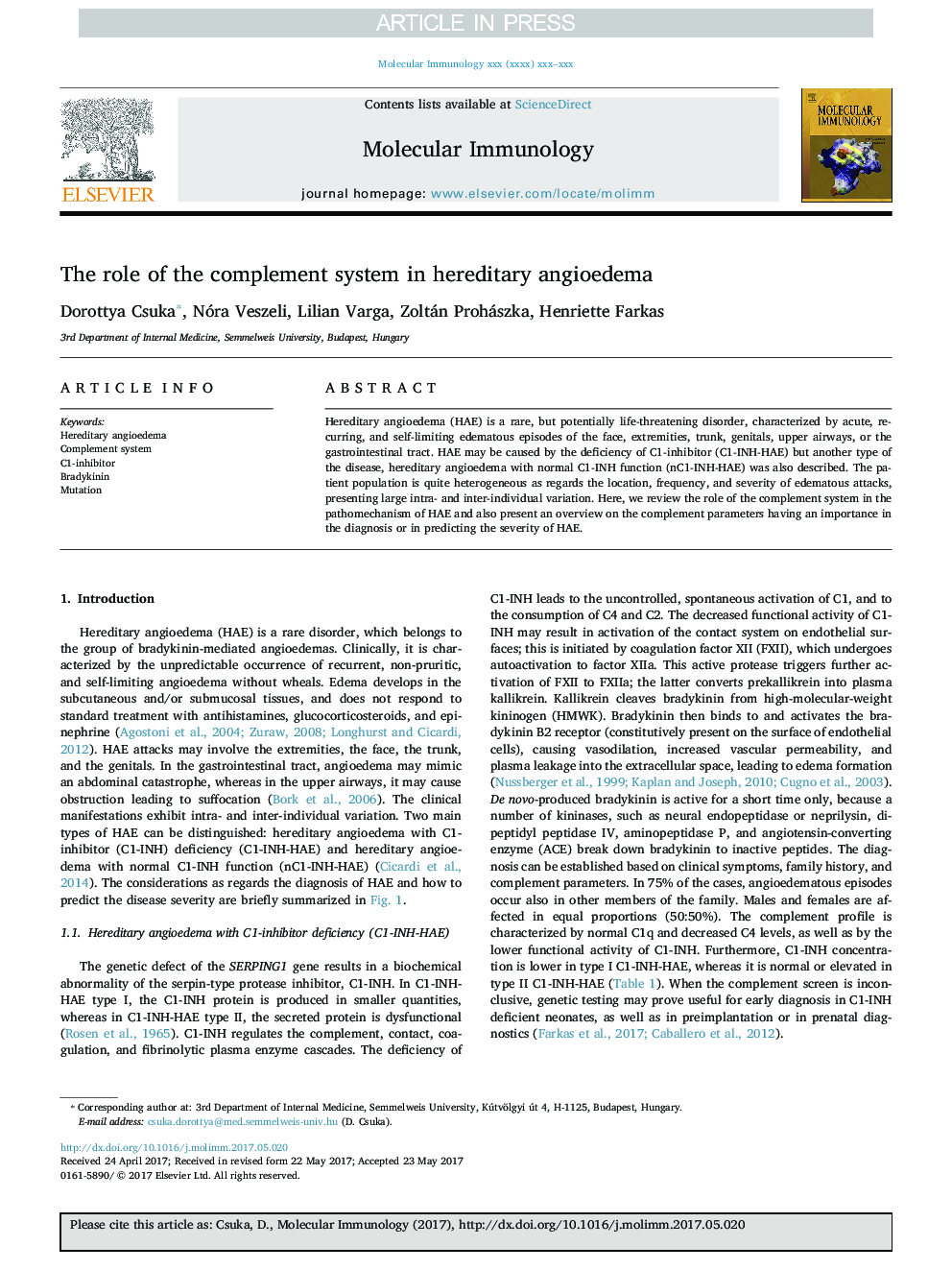| Article ID | Journal | Published Year | Pages | File Type |
|---|---|---|---|---|
| 5591973 | Molecular Immunology | 2017 | 10 Pages |
Abstract
Hereditary angioedema (HAE) is a rare, but potentially life-threatening disorder, characterized by acute, recurring, and self-limiting edematous episodes of the face, extremities, trunk, genitals, upper airways, or the gastrointestinal tract. HAE may be caused by the deficiency of C1-inhibitor (C1-INH-HAE) but another type of the disease, hereditary angioedema with normal C1-INH function (nC1-INH-HAE) was also described. The patient population is quite heterogeneous as regards the location, frequency, and severity of edematous attacks, presenting large intra- and inter-individual variation. Here, we review the role of the complement system in the pathomechanism of HAE and also present an overview on the complement parameters having an importance in the diagnosis or in predicting the severity of HAE.
Related Topics
Life Sciences
Biochemistry, Genetics and Molecular Biology
Molecular Biology
Authors
Dorottya Csuka, Nóra Veszeli, Lilian Varga, Zoltán Prohászka, Henriette Farkas,
